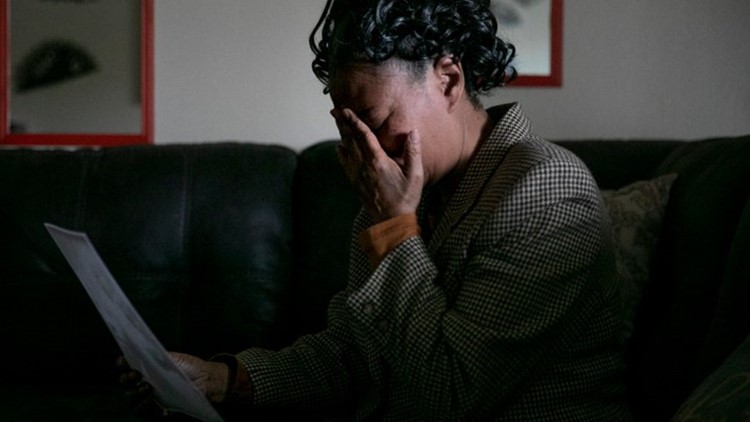CALIFORNIA, USA — This story was originally published by CalMatters.
DeAndre Davis has been waiting 651 days in a Sacramento County jail. Charged with the murder of a 21-year-old man shot during a robbery in 2019, he hasn’t been tried and he hasn’t been sentenced — and he hasn’t even had a preliminary hearing to decide if there’s enough evidence to take him to trial.
For Davis, it’s been an agonizing ordeal made worse by the pandemic. Held without bail because of the severity of the charges, he’s locked down as much as 23 hours a day inside a concrete box as his life outside is crumbling. From his cell, he went through a divorce and lost custody of his 10-year-old daughter, he said.
“I’ve lost so much of my life in here, fighting this case,” said Davis, 37, speaking during a collect call from the Rio Cosumnes Correctional Center in Elk Grove. “I don’t want to sit in here another year or two.”
Nearly two years of waiting is a different kind of torture for Jennifer Maraston. She’s the mother of Jaquan Wyatt, the man Davis is accused of killing at a Sacramento apartment complex.
“There’s not a day that goes by where I don’t get up and think about my son,” Maraston said.
“Emotionally it takes a toll — the not knowing. I don’t want the case to get to the back of people’s minds. I don’t want people to forget this is still going on.”
But justice for Davis and Maraston is many more months, if not years, away.
Davis is one of thousands of men and women throughout California who are stuck for years in county jails without being convicted of any crime. A CalMatters investigation has revealed that at least 1,300 people have been incarcerated in California’s jails longer than three years without being tried or sentenced.
Of those, 332 people have been waiting in jail for longer than five years, according to CalMatters’ analysis. And one man in Fresno County has been jailed awaiting trial in a double-murder case for nearly 12 years — 4,269 days since his arrest.

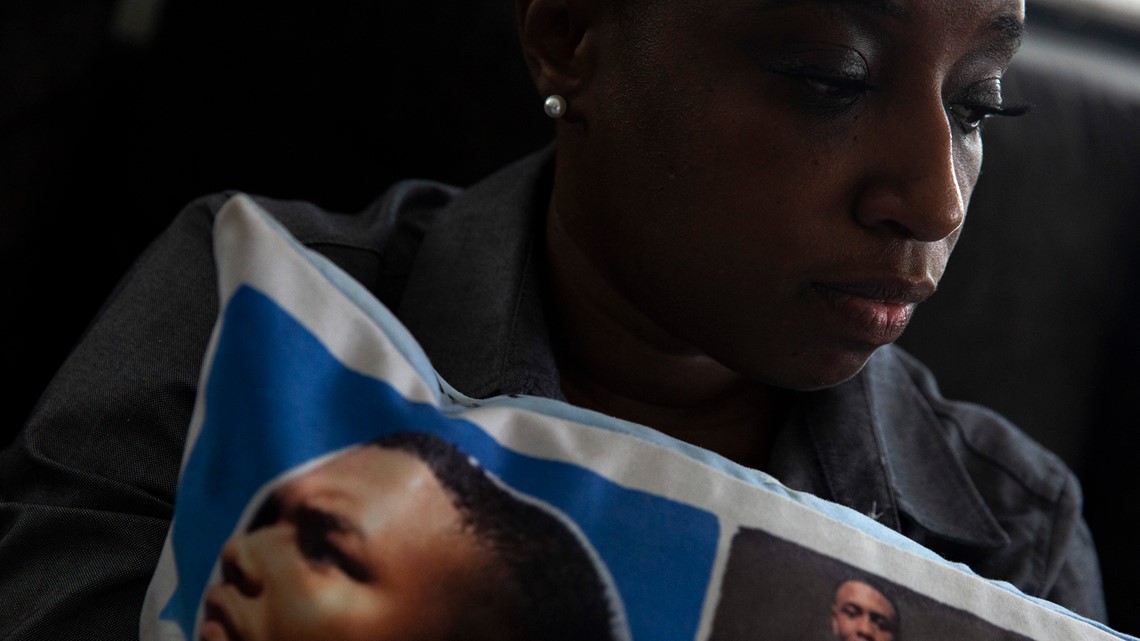
The reasons for the long delays are myriad: Defense attorneys seek extra time to prepare, prosecutors pursue stiff sentences that lead to extra hearings, and judges struggle to manage their crowded calendars.
The result is a troubling backlog of cases that existed even before the pandemic. Now COVID-19 has pushed the problem to a crisis point. Shuttered courtrooms have delayed hearings, and state emergency orders have allowed judges to waive speedy trial rights and keep pushing back trial dates — all leading to even more time behind bars for people who have been charged but not convicted of a crime.
“The wheels of justice turn very slowly,” said Mariam El-menshawi, director of the California Victims of Crime Resource Center and adjunct professor at the McGeorge School of Law. “With COVID, it’s slowed down the process even more.”
These are men and women for whom the notion of “presumed innocent” has been turned on its head. They — along with the victims of crimes awaiting justice — are the human toll of a California judicial system that struggles to dispose of cases in a timely manner.
Most of the defendants held in jail before their trials are Black and Latino, based on the 21 counties where demographic data was available. In San Francisco, for instance, where 5% of the population is Black, half of the unsentenced inmates jailed for longer than a year are Black, including 25 who have been jailed longer than five years, according to sheriff’s department data.
Many low-income people are incarcerated for years before they are convicted because they can’t pay bail. Last week, the California Supreme Court ruled that people can’t be held in jail before trial solely because they can’t afford to get out. But there appears to be no immediate impact; judges will have to rule in those cases, and they still can consider public safety before releasing detainees.
READ MORE:
The longest delays are for people charged with felonies, which range from burglary to sexual assault to murder. If people are ultimately convicted, the time they serve before trial counts toward their sentences. But some eventually will be acquitted or have charges dropped; others will take plea deals to get out.
California’s Judicial Council guidelines recommend that felony cases generally wrap up within 12 months. Yet even before the pandemic, the state’s courts closed only about three-quarters of felony cases in that timeframe, according to the Judicial Council’s most recent annual report.
But many of the courts are incapable of accurately reporting the data, so that percentage could actually be better or worse. It’s a troubling situation: The state Judicial Council doesn’t know how severe the delays are in its trial courts, calling into question how it can provide even basic oversight of a system that encompasses hundreds of thousands of Californians a year.
A snapshot of sluggish justice
CalMatters sought records from all 58 county sheriff’s departments. Thirty-three provided the records, which listed about 5,800 people who have been behind bars for longer than a year without being sentenced for a crime. For 22 counties that wouldn’t provide records, CalMatters scraped online inmate locators and court dockets, uncovering another 2,800 inmates held for longer than a year. (Some could be serving sentences in jail or waiting for a prison transfer.) Three — Ventura, Tuolumne and Trinity — didn’t respond to the records request and don’t have online jail rosters.
The records offer an unprecedented glimpse into the impact of California’s sluggish justice system. Most counties have inmates who have been stuck in jail for years without a trial.
In Riverside County, for instance, 121 people have been locked up longer than three years without being convicted or sentenced, while 33 have been jailed longer than five years, according to records from the county’s sheriff’s department. About 650 of nearly 1,900 inmates with open cases have been held longer than a year.
In Contra Costa County, 38 unsentenced people have been behind bars longer than three years, including nine waiting in jail longer than five years.
In Los Angeles County, which has the state’s largest jail population, 1,350 unsentenced people have been waiting longer than a year, and about 180 have been there longer than three years, according to the sheriff’s department data.
“If the case is still provable, then move it forward aggressively. And if it’s not for any reason, then we should reevaluate our settlement position or consider dismissal,” said San Francisco District Attorney Chesa Boudin, who tried to tackle a backlog of older cases when he took office.
“There are some cases where after three, four, five years, we simply don’t have the evidence to prove the case. And the sooner we identify those cases, the more efficient we can be with our limited resources focused on cases that we can prove.”
Delays carry more than just an emotional cost for victims and defendants.
“There is a dollar cost to this issue too,” said Sagar Bajpai, a law student at the UCLA Law School who co-authored a recent report that found that detainees are spending more time behind bars pretrial in Los Angeles County during the pandemic.
Los Angeles County spends about $43,000 to house an inmate in jail for a year, according to the report. There’s also a cost for courts; one decade-old study found if the courts granted one fewer continuance in every felony case, it would have saved about $60 million a year.
Not all inmates will ultimately be convicted after their long stints in jail.
In August 2016, Victor Jimenez, 41, was charged in Los Angeles County Superior Court with illegally possessing a firearm and drugs for sale. He said he refused a deal to serve six years, preferring to go to trial because, he said, he didn’t do it. But the case dragged on for months. “It’s pretty tough, man,” Jimenez said.
READ MORE:
A jury acquitted him, and he walked out of the courthouse a free man in January, 2018 — after serving 503 days in jail.
County jails are not set up to hold people for years at a time. Many don’t have outdoor exercise space or educational programs like prisons do, and jails are at high risk of COVID-19 outbreaks without adequate medical services.
Lenore Anderson, president of the Alliance for Safety and Justice, a justice reform advocacy group, was surprised that CalMatters found at least 1,300 people have been stuck in California jails fighting a case for longer than three years.
“It is shocking people would be waiting this long,” she said. “Jails in essence were built as short-term facilities.”
David Lee Williams, who was arrested in 2019 for allegedly stealing a car and illegally possessing a firearm and drugs, has been held in Sacramento County jail for two years. He said he turned down a plea deal that would have amounted to four years behind bars because he said he didn’t steal the car and has proof he paid for it. He can’t afford to put money down toward his $500,000 bail, or to pay for better legal representation.
“I don’t have enough money to get my attorney to work harder for me. I don’t have the resources,” Williams said.
Williams said being in jail is in many ways harder than his earlier stints in prison.
“It’s a lot on your psyche because at least you know the next level is home from prison,” he said. “Here being in this tinder box right now with the coronavirus you’re wondering every day if you’re going to get it.”
Williams said he recently did get sick with COVID-19.

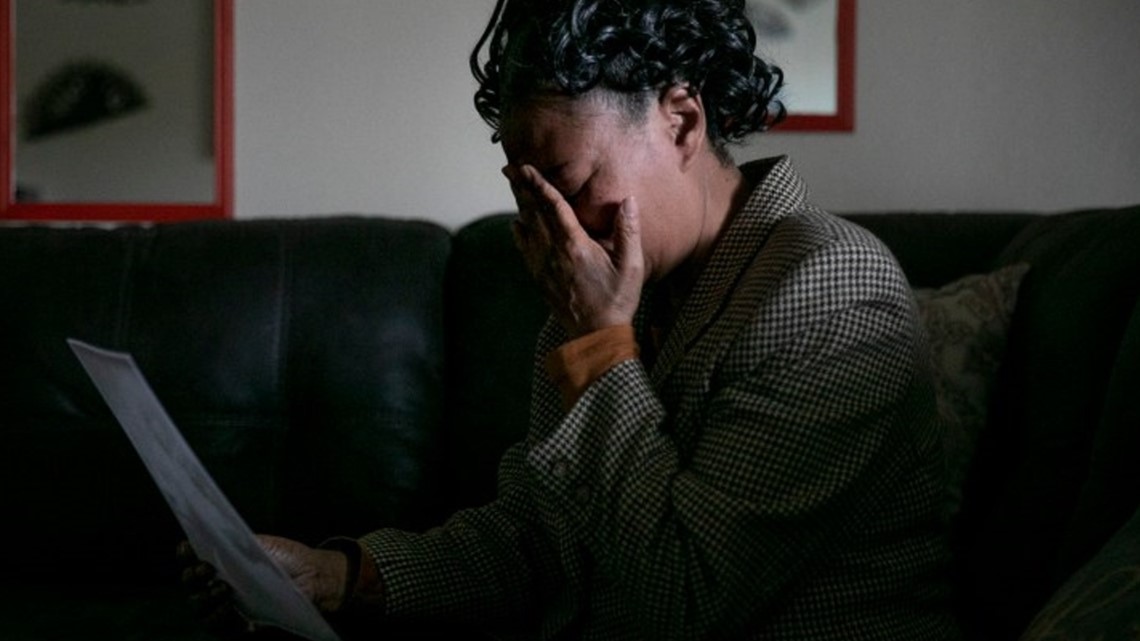
His mother, Kello Gordon, said it’s stressful knowing her son is “sitting in there in limbo” facing a possible life sentence, thanks to California’s “three strikes” sentencing law and his prior criminal record.
“All I can do is pray and hope they find the leniency and not just throw the book at him because they can,” Gordon said.
‘Year after year, after year, after year’
Albert Deeds was arrested for burglary in December, 2013 and spent longer than six years in the San Francisco jail before he was released last year.
Deeds had a history of burglaries, a pattern he said was born of his crack cocaine addiction and severe depression. “It was only a means to get money, so I could get high because I was hurting,” he said.
Because of his extensive history of nonviolent crime, he said, he was facing life in prison and the prosecutor at the time seemed uninterested in cutting a deal. So he sat inside while the case dragged on.
“Year after year, after year, after year, nothing was moving,” Deeds said.
“It was always an excuse — the judge is out today. Let’s set this three months down the line. Then it’s the date and, oh, the judge is on vacation,” he said, adding that his own defense contributed to delays. “It just kills you inside. You want to be with your family.”
Deeds said when Boudin took over as San Francisco district attorney last year, he got a deal that amounted to time served and he was finally able to get out of jail.
San Francisco has struggled to dispose of cases in a timely manner. In fiscal year 2018, the county completed 43% of felony cases in under 12 months, compared to the statewide rate of 79%, according to the Judicial Council’s annual report. The percentage only includes felony cases that made it past preliminary hearings; eight out of 10 cases are resolved before then, according to a court spokesperson.
Boudin said the San Francisco District Attorney’s Office had more than 5,000 open cases when he took over. About 20% were more than two years old. His immediate goal was tackling that backlog.
There are multiple reasons why some pretrial detainees might be in jail for a few years — like a mental health hold or because of a negotiated settlement.
“Some of it is just general dysfunction and a bureaucratic morass,” Boudin said.
In a normal year, the San Francisco District Attorney’s Office handles about 300 jury trials. In 2020, there were only 27 trials and many were held before the pandemic, Boudin said.
“That is something I inherited and was really determined to fix. And I still am. But we’re now in a worse position then we were when I took office, because of the pandemic.”
Delay is a legal strategy
Defendants do have a right to a speedy trial. But they often waive such rights and their attorneys ask for continuances to keep preparing a case. Prosecutors say some defense lawyers use delay as a strategy, knowing a prosecutor’s case could fall apart if it drags out long enough.
“One of the foundational truisms of criminal law is that next to an acquittal or a dismissal, the best thing for a defendant oftentimes is a continuance,” said Larry Morse, legislative director for the California District Attorneys Association and former Merced County district attorney.
“The old maxim of ‘justice delayed is justice denied’ is a tenet of most prosecutors. Our cases generally don’t get better with the passage of time. Witnesses disappear, pass away, get less interested in cooperating.”
Justice reform advocates and defense attorneys blame many of the delays on California’s sentencing laws, including enhancements that add time to sentences and the three strikes law. They also blame prosecutors for overcharging defendants and letting them sit behind bars as a way to pressure a plea deal.
“For most of our cases the sentences are so draconian and severe…(that) there’s not a lot of reason to rush their case forward,” said Natasha Minsker, an attorney and criminal justice consultant in Sacramento.
Elizabeth Camacho, a felony case manager in the San Francisco Public Defender’s Office, worked on Deeds’ case. “Stories like this happen all of the time, where the enhancement is so great that you must do everything because if they lose, they do get sent to prison for life,” Camacho said.
Lots of motions and hearings, time to review evidence and investigations of witnesses often mean lengthy jail detention before conviction. Mental health proceedings can add time to cases; many of the longer jail stays involve cases with a competency hearing.
Sacramento County’s courts have historically reported better than average case processing times. Sacramento disposed of 98% of felonies within 12 months, according to the state’s 2019 court statistics report.
But the pandemic is creating an alarming backlog, said Sacramento County Assistant Chief Deputy District Attorney Scott Triplett. “Every case, no matter where it is in the system, it’s almost like you can just add 12 months to the age of the case,” he said.

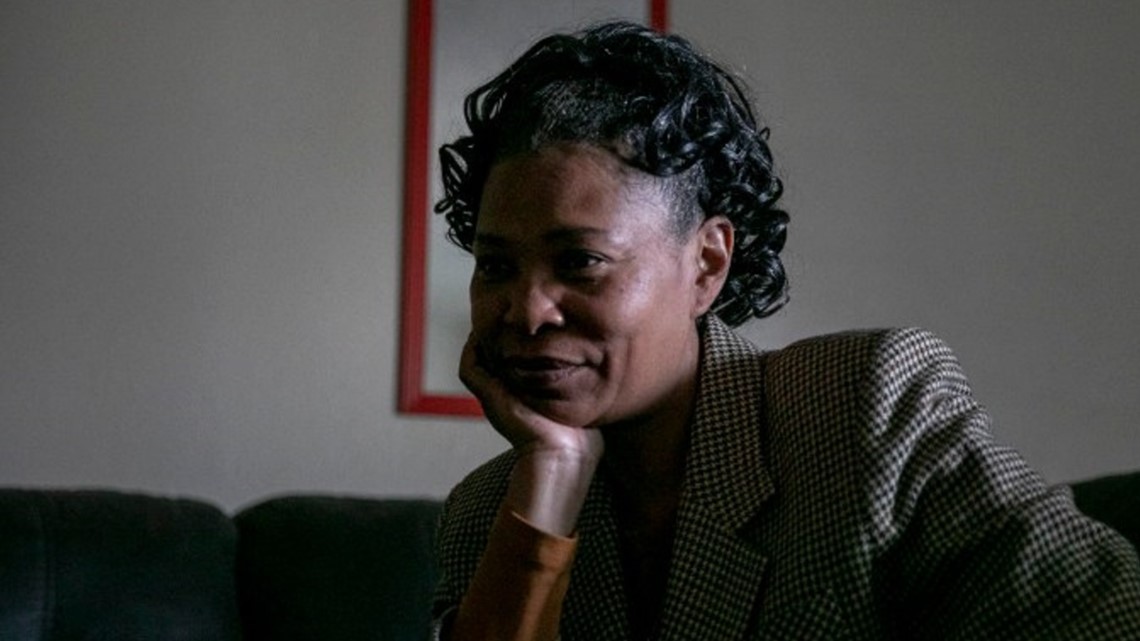
The DA’s office has a unit that tries to settle felony cases early, before they get to a preliminary hearing. Pre-pandemic, attorneys in that unit had a caseload of about 120 each. Now? The attorneys each have close to 400.
To combat COVID-19 outbreaks in jails, the courts enacted emergency measures designed to release many defendants on zero or reduced bail.
“When cases aren’t resolving it doesn’t just mean they’re going away,” Triplett said. “Caseloads are just swelling. At some point we’re going to feel like the dam has broken.”
And that flood of cases will impact the outcomes. If defendants assert their speedy trial rights after the pandemic, it could overwhelm the system.
“Will there be cases dismissed because there aren’t available court rooms? Probably. Are there going to be deals being made that are more attractive to defendants? That’s happening now,” he said.
‘Important for me to fight his fight’
Morse of the District Attorney’s Association has a unique perspective on the long delays for justice. The long-time prosecutor lost his own son to murder two years ago.
“I know the empty vacant look in the eyes of families who have had someone stolen from them in the most brutal nonsensical fashion. We have a very deep compact with victims to ensure we do everything we can to ensure justice is achieved,” Morse said.
Jaquan Wyatt died on the streets of Sacramento in May 2019, the day after turning 21. His mother lives more than 1,700 miles away in Dallas,Texas.

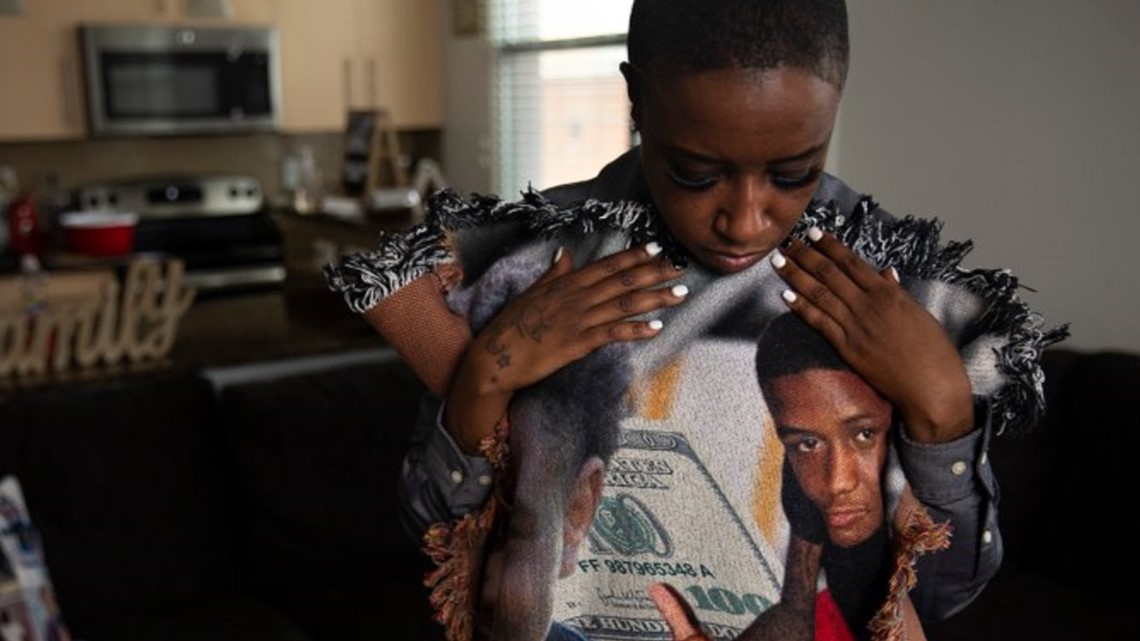
A month after the killing, Maraston was headed to a Texas cemetery to mourn when she got a call from a Sacramento detective saying police arrested six men, including Davis, for allegedly killing her son and attempting to murder two others.
She flew out with a friend for the initial hearing in the case, flew out again to mark the anniversary of the death and to meet the new prosecutor assigned to the case, and has logged on to every virtual court hearing she can since the pandemic started.
“This was my son, my first-born son. I am his representative. I am his mother. It’s important for me to fight his fight,” she said.
“I’ve still got work to do for him,” she said, holding back tears as she described Wyatt as a funny kid who was a role model for his three siblings. “He was a great kid and I miss him so much.”
She said a conviction and sentence will help her move to the acceptance stage of grieving — accepting that her boy is gone.
Multi-defendant murder cases — like the one against Davis and five other men charged in the killing of Maraston’s son — are particularly complex and often take years, prosecutors said. Just juggling the schedules of six defense attorneys delays cases for months at a time. Prosecutors say Davis shot Maraston’s son; he alleges that it was others.
If she’s lucky, Maraston won’t have to wait as long as the family of Gary and Sandra De Bartolo, a Central Valley couple whose throats were slashed in what appears to be a robbery gone bad.
That was almost 12 years ago.
The man charged with wielding the knife was booked into a Fresno County jail on July 23, 2009, records show. He’s been there ever since, accused but not convicted of the murder. It’s one of the longest-running cases in the state, and it appears to have dragged on because it has multiple defendants and was ensnared in a statewide controversy over when accomplices can be held guilty of murder.
Sandra’s younger brother, Ken Carvalho, remembers talking to law enforcement after the arrest. “They told me it’ll be a year or two probably before this comes to a head. In July, it’ll be 12 years. I’ve lost all faith in the judicial system,” Carvalho said.
He said he’s been to court 50 or 60 times over the years. He’s on the fourth prosecutor handling the case. Two defendants were released in recent years.
Jury selection in the trial of his sister’s accused killer began last year. Then it was halted when the pandemic hit. He doesn’t even care if the suspect gets the death penalty or not. “I just want it done,” he said.
‘Serious shortfalls’ in court budgets
Many attorneys and experts blame a lack of court resources for a role in the long delays.
“There’s too many cases, too few courtrooms, too few judges, too few staff, insufficient numbers of jurors,” said LaDoris Cordell, a retired Santa Clara Superior Court Judge.
The budget of California’s judicial branch hasn’t kept pace with the workload, according to a biennial report the Judicial Council, the state judicial branch’s policymaking body, prepared in November for the Legislature.
“The number of judgeships authorized and funded by the Legislature has not kept pace with workload in all California trial courts, leaving some with serious shortfalls,” the council’s administrative director wrote. Eighteen courts in the state need 139 more judges, according to the council.
In an attempt to assist the backlogged courts, the Judicial Council approved emergency measures during the pandemic to allow for remote proceedings and lifted caps limiting the number of hours retired judges could work in a year.
Still, it’s not a new problem: Local courts have long struggled with staffing levels and resources.
“We have been really challenged by the shortage of funding for many, many years,” said David Yamasaki, the Orange County Superior Court’s executive officer and a former member of the Judicial Council.
The number of judges alone, however, doesn’t appear to be a solution to long delays. Dozens of courts appear to have adequate staffing levels and yet continue to struggle to resolve cases, Judicial Council data shows.
Individual judges do have some control over the pace of cases. They can push attorneys to reach agreements and can refuse to grant additional continuances.
“I’ve seen some courts that never saw a continuance it didn’t like. I’ve heard of other judges that virtually never grant continuances and jam cases along. I’d say both of those extremes are probably not the best way to do business,” said J. Richard Couzens, a former Placer County superior court judge who was part of a team of judges from around the state that helped clear backlogs in the Riverside County court during the mid-2000s.
The state needs to strike a balance between ensuring broad access to justice while also giving locally elected judges their discretion, he said.

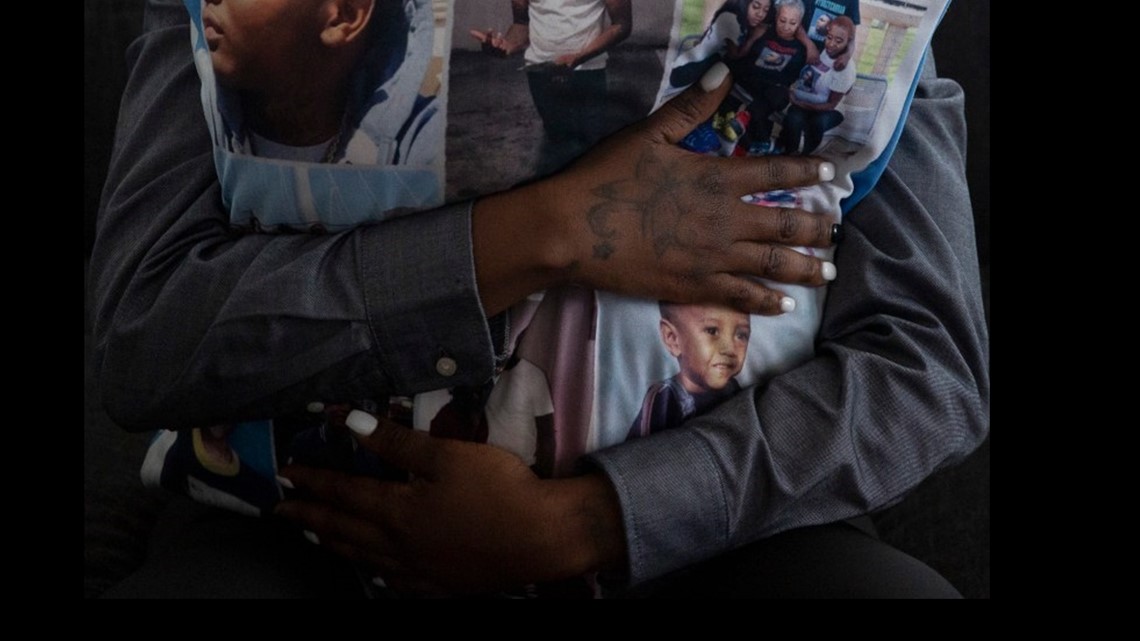
“Ultimately is the remedy going to be worse? Is the answer taking away judicial discretion?” Couzens said. “What injustice does that cause?”
In Sacramento, Davis was finally scheduled for a preliminary hearing this month to determine if there’s enough evidence to keep holding him in jail. He asked the judge to go to trial, but the hearing was pushed back once again at the request of another defendant, this time to the end of May. By then, Davis will have spent 709 days in jail without a conviction.
For him, and the mother of the man he’s accused of killing, the wait for justice continues.
Graphics and design by Jeremia Kimelman. Video by Byrhonda Lyons.

